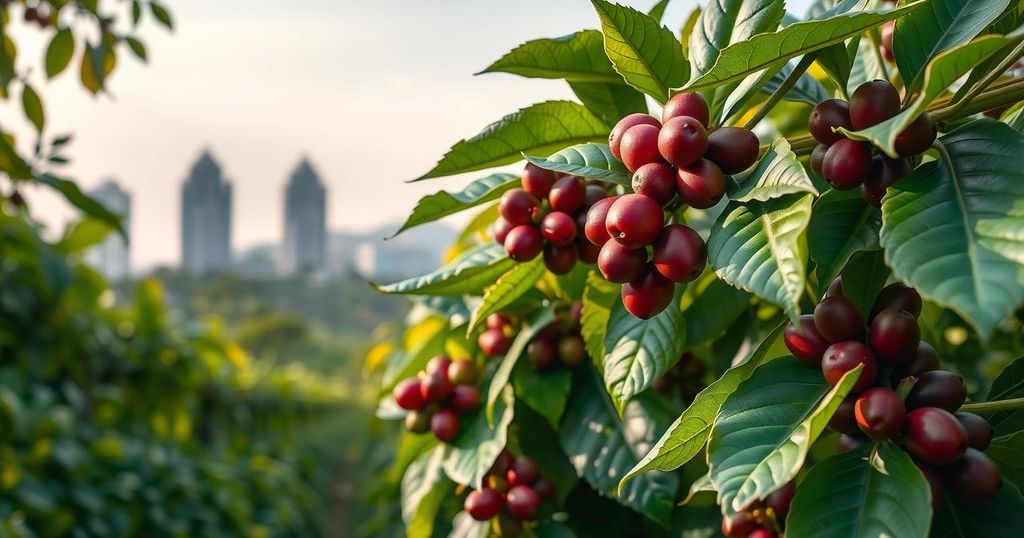Coffee prices fell today with May arabica and robusta futures decreasing. Production estimates for 2024/25 indicate a 4% increase, yet Brazilian yields are revised down due to drought conditions. The USDA forecasts declining global coffee stocks and a significant deficit for 2025/26, raising concerns over supply pressures.
The May arabica coffee futures (KCK25) declined by 0.70 cents or 0.19%, while the May ICE robusta coffee futures (RMK25) fell by 23 cents or 0.43%. The drop in coffee prices occurred after earlier gains were reversed, primarily due to fluctuating Brazilian real projections. Current estimates project a 4% year-over-year increase in global coffee production for 2024/25, totaling 174.855 million bags, bolstered by an increase in both arabica and robusta outputs.
The USDA’s Foreign Agricultural Service (FAS) anticipates that ending stocks for 2024/25 will decrease by 6.6%, reaching a 25-year low of 20.867 million bags compared to 22.347 million bags for 2023/24. Furthermore, the agency reduced Brazil’s anticipated coffee production for the 2024/25 season to 66.4 million metric tons, down from the earlier estimate of 69.9 million metric tons. Brazil’s coffee inventories are forecasted to fall to 1.2 million bags by the end of the 2024/25 season, marking a decline of 26% from the previous year.
Looking ahead to the 2025/26 marketing year, Volcafe has revised its estimate for Brazil’s arabica coffee production to 34.4 million bags, a substantial decrease of about 11 million bags since September due to a severe drought affecting the region. This year is projected to see a global deficit of 8.5 million bags in arabica coffee supply, surpassing the previously predicted deficit of 5.5 million bags for the 2024/25 season, marking the fifth consecutive year of global deficits.
In summary, coffee prices are under pressure, influenced by the performance of the Brazilian real and revised production forecasts. The USDA anticipates a decline in Brazil’s coffee output alongside a significant drop in global arabica supplies. As drought conditions persist in Brazil, the coffee market faces challenges that suggest continued price volatility and supply shortages.
Original Source: www.tradingview.com






